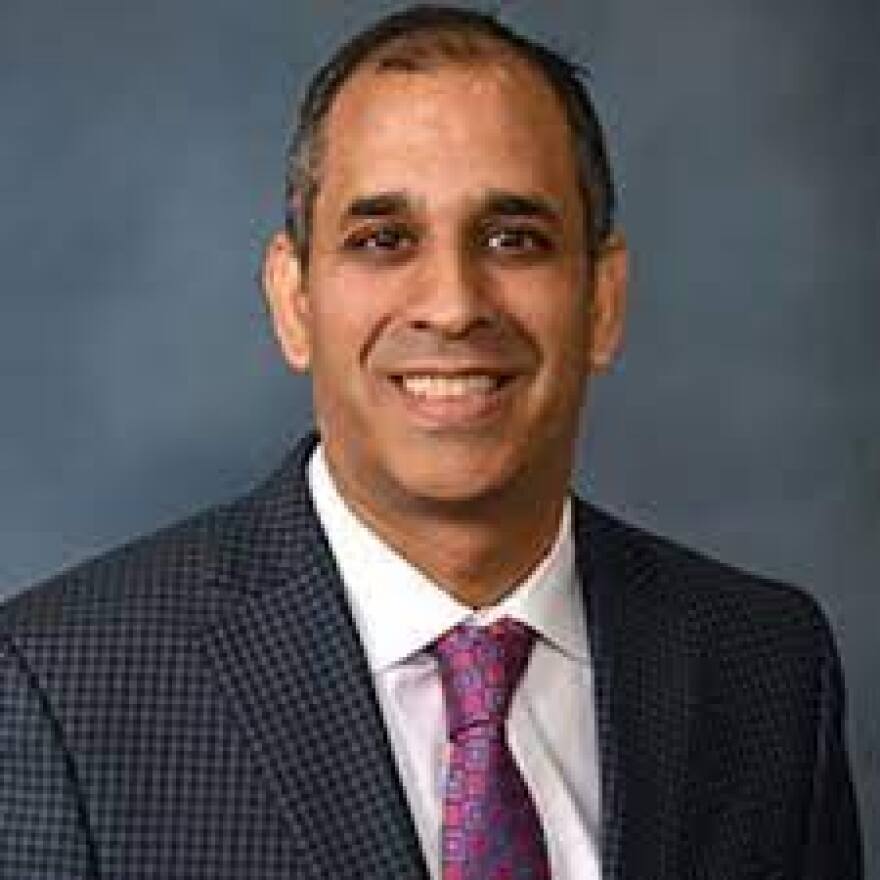Elections for school board are usually low-key contests involving small amounts of cash. This year, many candidates in the commonwealth report no campaign contributions, but some have raised surprising amounts of money. At the University of Pennsylvania, political scientist Daniel Harris says he’s seen that in his state too.
“Republicans in some key districts have mobilized, and there have been prominent Republican aligned groups that have been particularly active in mobilizing parents to run for school board and to contest local school board elections,” he says.
In Virginia, Governor Glenn Youngkin’s PAC has donated to candidates in Goochland and Roanoke Counties, and the Republican Party of Roanoke County gave more than $4,500 to candidate Brent Hudson. He was running unopposed until Samantha Newell heard about new policies he backed, requiring parents be notified if a student identifies as transgender, and their gender at birth must be used for school activities and bathrooms. Newell is now running as a write-in.
In Albemarle County candidate Meg Bryce— daughter of the late Supreme Court Justice Antonin Scalia— raised more than $41,000, with contributions from two major Republican donors.
But GOP PACS and partisans are not alone in backing local school board candidates. The incumbent running for chair of the Prince William County School

Board has raised more than $136,000. Babur Lateef, is a prominent eye doctor who has – himself -- given large sums to Democrats like Terry McAuliffe. This year McAuliffe’s PAC gave Lateef $5,000.
In Fairfax County, candidate Ryan McElveen got $4,800 from a PAC called Democrats for Route One Progress and $1,300 from the Democratic party.
School board races in Virginia are, by law, non-partisan, which makes you wonder why parties and PACS would get involved. Professor Dan Harris has a theory.
“We as voters only get to vote for president or for Congress every two or four years, and so political parties, they want to keep citizens and activists engaged year-round. They want to build lists. They want to build a farm team, and they want to advance their agenda. The party that doesn’t hold the presidency often feels a particular sense of threat and often looks for ways that they can organize.”
With the decline of local news media and the rise of partisan reporting on some cable channels, he says, many people begin to see school boards and local government through the lens of national politics.
“Members of the local school board find themselves asked contentious national questions that have very little to do with what the property tax rate is going to be or how they’re going to pay for textbooks but everything to do with how the two major parties are positioning themselves in national politics," Harris explains.
This trend began, he says, with the pandemic and parents debating what should be done for kids.
“Whether schools were opened and whether they required masking or not, but we’ve also seen in recent years a very contentious set of issues around gender, around race and ethnicity.”
Harris says many parents who had not been politically active jumped into the fray.
“School boards are tangible in a way that maybe elections for senate or certainly for president may be less so. School board elections give people an opportunity to mobilize, in their own communities, on issues that they can see, that affect their children, so they provide a very natural starting ground to engage sets of parents who maybe weren’t previously very political.”
Candidate Glenn Youngkin saw the issue and ran with it. Recently the governor proclaimed, “In Virginia, parents matter and my resolve to empower parents is unwavering. A parent’s fundamental right to be involved in their child’s education, upbringing, and care should never be undermined by bureaucracy, school divisions or the state.” Political pundits say that view was key to his victory and is now a talking point in many other elections.
This report, provided by Virginia Public Radio, was made possible with support from the Virginia Education Association.


